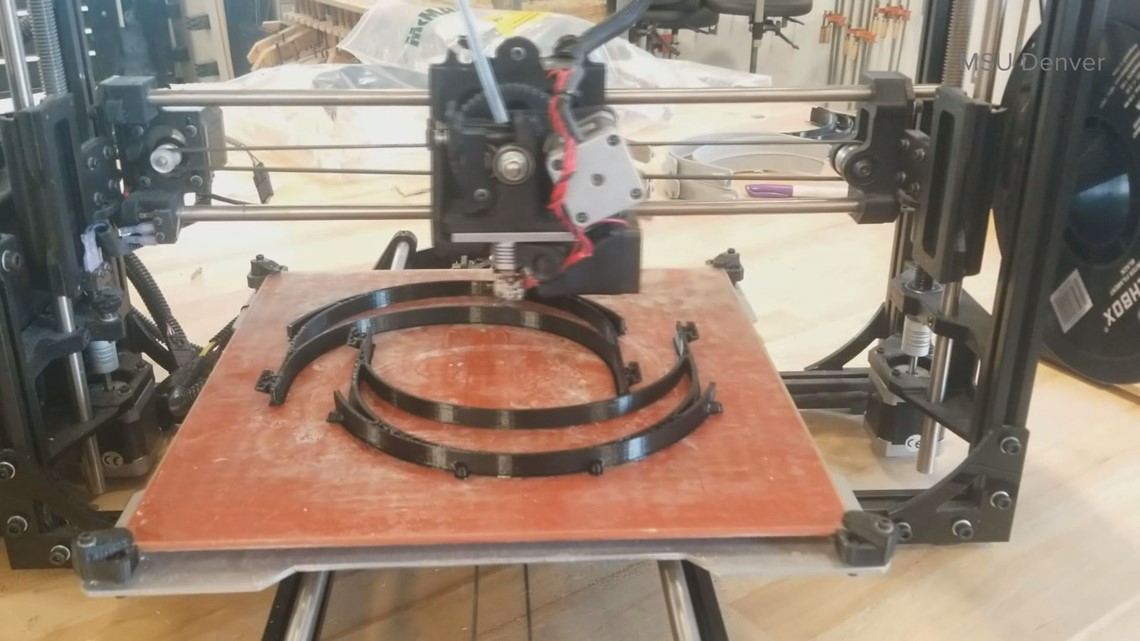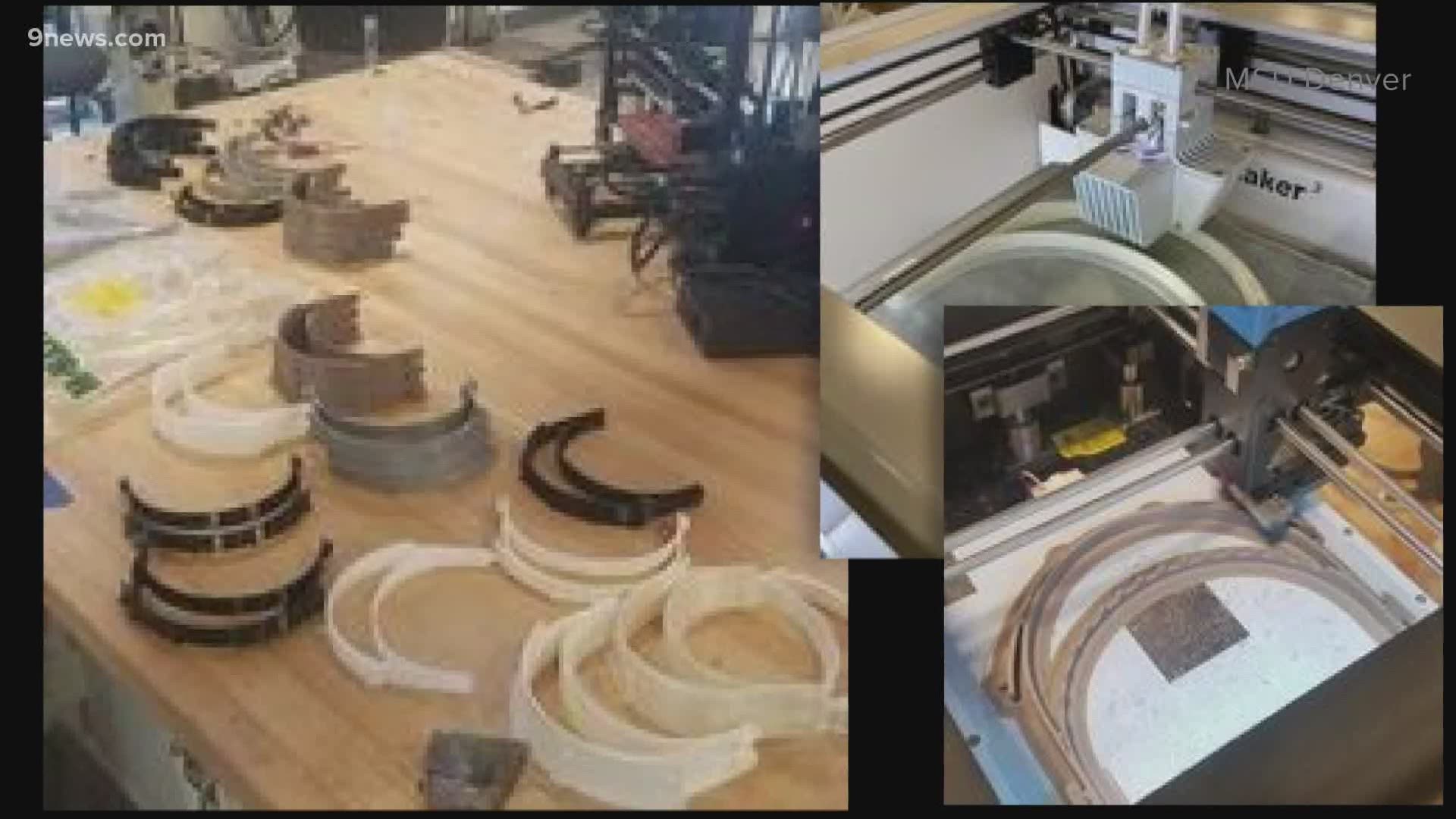DENVER — A Metro State University of Denver (MSU) professor and his students are using their love for science to help with the COVID-19 pandemic.
Dr. Aaron Brown, a professor at MSU, heads the Department of Mechanical Engineering and Technology. He and his students are using snorkel masks to help flatten the infection curve.
“They are 3D printing valves that adapt to snorkel masks to be an intermediate ventilator not intubation but something that can keep people from descending and needing intubation," said Brown.
The first cases of COVID-19 was reported in Colorado on March 5. Since then it's spread rapidly and has been reported in 54 of the states 64 counties and is blamed for nearly 200 deaths.
A project in Italy, which has been hit particularly hard by the novel virus, inspired the work of the MSU students here. They used the plans from Italy and modified them to fit the materials students have here.
Brown said they've started printing and have already printed about 50. He said teamwork is the key to this fast-paced project.
“It's a big collaboration really working with Warren Tech High School, working with their lab, our lab, and the CCD (Community College of Denver) all three are working together to ease the burden that we are projected to see," said Brown.
The masks they're printing have an airtight seal and provide positive air pressure which helps patients breathe.
“The idea is the patients that come in that are struggling to breathe if there are not intubation ventilators available, they can use these and that will keep them from declining," Brown said.


A typical 3D printer can make about six valves a day but MSU has a printer that can make 30.
“I'm working with Congressman Joe Neguse's(D-Boulder) office to figure out which hospitals will be most in need. The other day Eagle County Emergency Management contacted me,” Brown said.
It's a need and a possible solution to help in this pandemic.
“Obviously this is scary stuff we have going on and life has changed drastically in a short time but if we stay positive. I think we can do great things that can make a great impact."
Brown started the Humanitarian Engineering Club for students at MSU. He said there is no cost for the masks. They are all donations but he said making them is a great service-learning experience for his students.
SUGGESTED VIDEOS: Science is Cool

